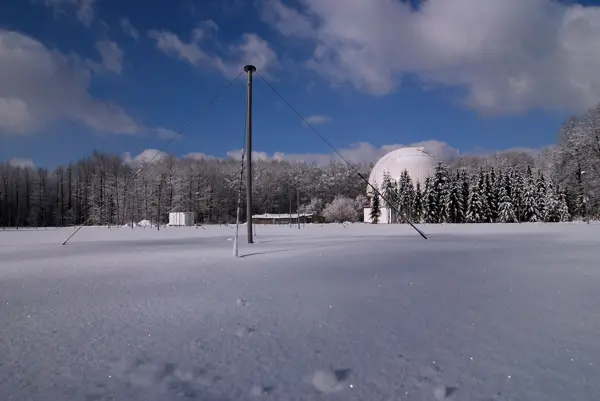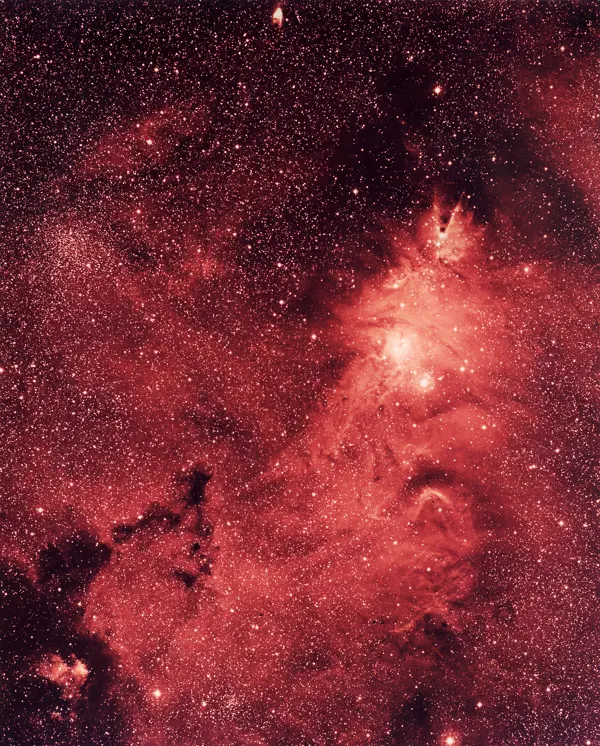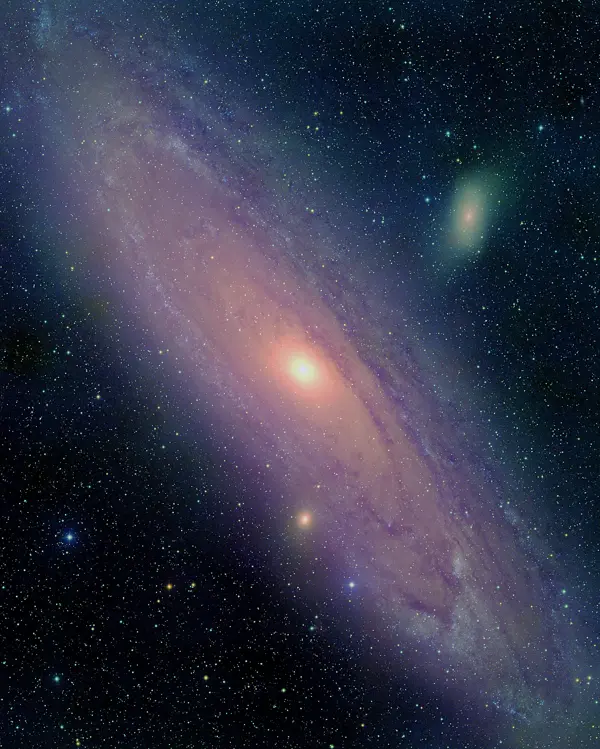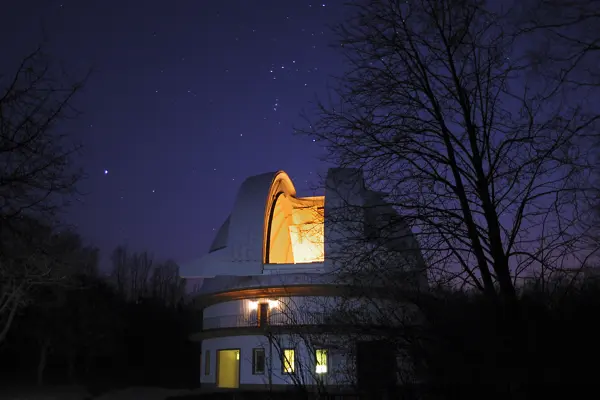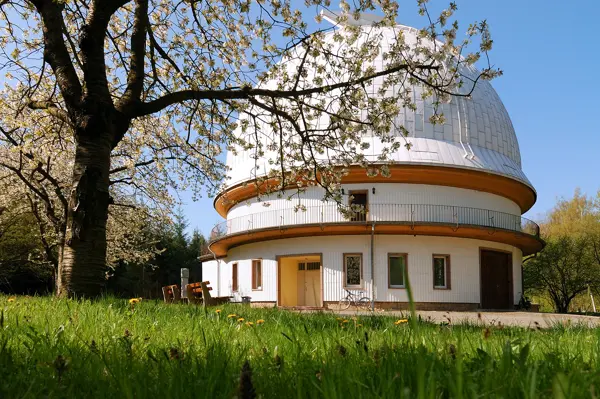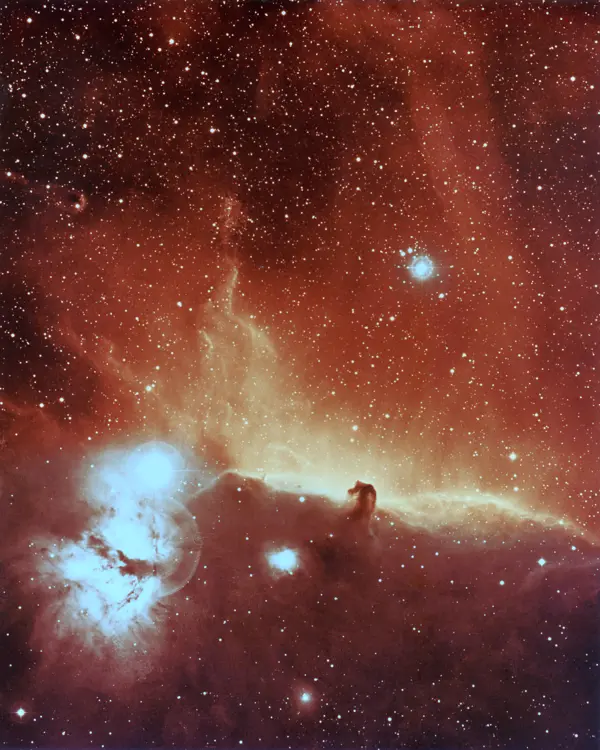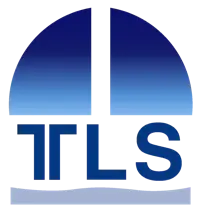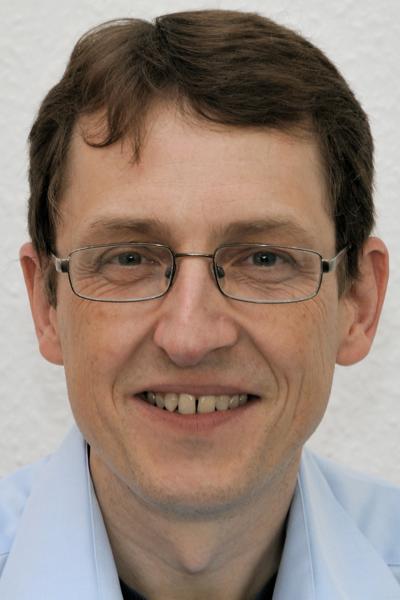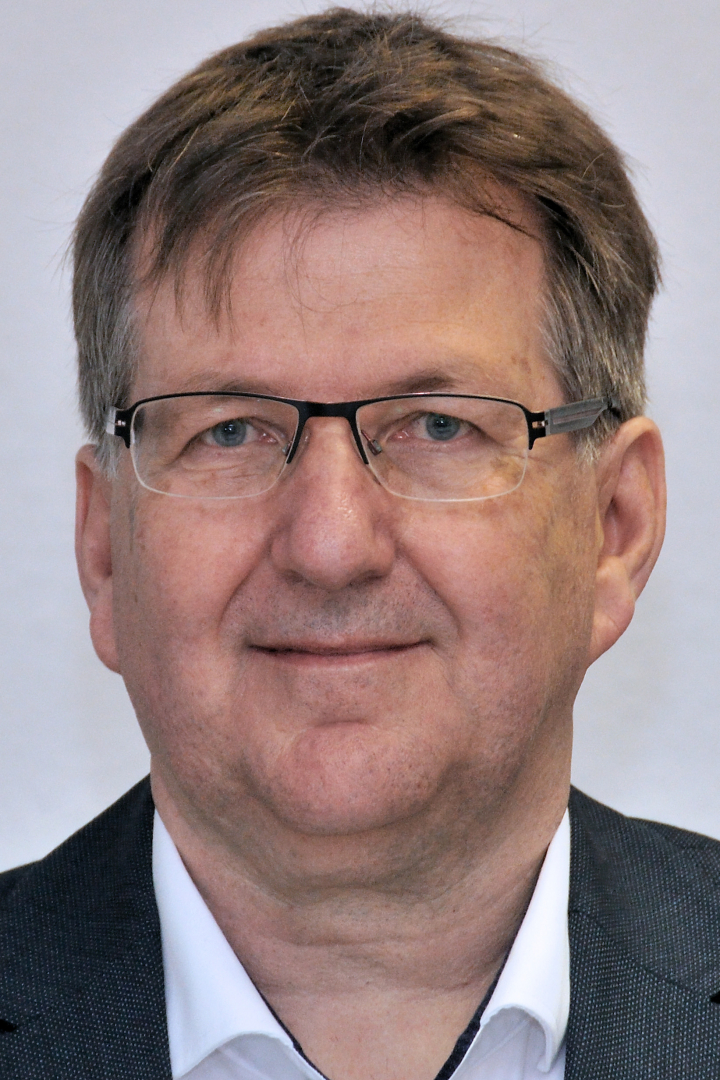The Thuringian State Observatory Tautenburg (TLS) is a research institute of the Free State of Thuringia. It conducts basic research in astrophysics. The astronomers
- search for and characterize extrasolar planets,
- observe and analyze solar and stellar oscillations,
- explore gamma-ray bursts,
- investigate the processes of star formation,
- examine the structure and evolution of the Milky Way and distant galaxies,
- and track asteroids.
TLS researchers use various telescopes for their observations: TLS astronomers observe at large telescopes worldwide. The centerpiece in Tautenburg is the 2-meter Alfred-Jensch Telescope for observation in the optical spectral range. The Thuringian State Observatory also operates a station of the European radio telescope Low Frequency Array (LOFAR).
The optical Alfred-Jensch Telescope is the largest Schmidt camera in the world. Due to its design, the Schmidt mirror has a very large field of view, allowing the 2-meter telescope of the Thuringian State Observatory to observe and photograph extensive celestial objects such as galaxies, nebulae, star clusters, and the orbits of asteroids well. As a universal telescope, it can be converted into a Coude telescope.
LOFAR is the world's largest radio telescope for receiving radio waves and ultrashort waves. The receiver stations are distributed across several countries in Europe: 38 stations are located at the headquarters in the Netherlands, six in Germany (one of them in Tautenburg), and others in France, Ireland, Latvia, Poland, Sweden, and the United Kingdom. Since January 2024, LOFAR is operated by a European Research Infrastructure Consortium (ERIC). The Thuringian State Observatory represents the German participants in the LOFAR ERIC.
In a modern solar laboratory, astronomers are developing instruments and a prototype for a solar observatory to continuously monitor the sun. Strong eruptions occur repeatedly on the sun, which hurl a lot of material into space. This material (plasma) can affect technological facilities in space and on Earth as a solar storm. For example, satellites for communication or navigation could fail or the power supply on Earth could be disrupted. The scientific investigation of solar activity is becoming increasingly urgent. For this reason, research into the interior of the sun and stars and their magnetic activity is being expanded as a field of research at the Thuringian State Observatory.
Astronomy and astrophysics are highly topical, internationally networked disciplines and a driving force for the development of new technologies. With its research in this field and the associated technological development, the TLS strengthens cutting-edge science in the Free State of Thuringia, particularly in the university city of Jena.
Highly qualified staff form the basis for the research institution's performance. Currently, a total of 50 employees are employed at the Thuringian State Observatory, including 35 in the scientific field, including junior research groups and scientific assistants. To achieve its research goals, they are actively involved in a variety of regional, national, and international networks. The researchers at TLS acquire observing time at the world's largest telescopes and answer research questions in collaboration with national and international partners. They are committed to the principles of good scientific practice and respect the diversity of people and ideas.
Latest News
-

Minor Planet Named after former Scientist of our Observatory
- Information
- 21 January 2026
The International Astronomical Union named a minor planet after a former scientist of the Thuringian State Observatory. Dr. David Alexander Kann had spotted the small object with our 2 meter Alfred-Jensch-Telescope while doing routine observations. The working group "Small Bodies Nomenclature" (SBN)... -

Northern Lights visible at the Observatory
- Information
- 20 January 2026
During the night of January 20th, 2026, as well as in the following night, there were multiple observable auroras all over Germany. The sky was filled with vivid red and green hues. This colourful event is linked to strong solar activity that happened on January 18th: an eruption in the active regio... -

A very fast and bright meteoroid over Tautenburg
- Information
- 12 December 2025
It is not an event that you see every day (or in this case: every night): The meteor camera at the Thuringian State Observatory recorded a very bright fireball during the night of November 18, 2025. The European Fireball Network, run by scientists at the Astronomical Institute of the Czech Academy o... -

New conference at Thuringian State Observatory puts spotlight on young scientists
- Information
- 02 December 2025
For the first time, young researchers at the Thuringian State Observatory held a one-day conference in Tautenburg. This new format gave Bachelor, Master and Ph.D. students a platform for presenting their work to the whole institute. Academic research profits from exchanging ideas. Scientific ideas an...
Interesting Topics
Exoplanets
How unique is our solar system in our galaxy, the Milky Way? How are planets actually formed? How common are extrasolar planets? And what conditions must be present for life to arise on planets ? Astronomers at the Thuringian State Observatory have been studying ...Read more
Galaxies, Galaxy Clusters, Quasars
Since light travels at a finite speed, looking deep into space is also a look back into the history of the universe. In recent decades, it has become possible to look so deep into the universe that observations reveal cosmologically relevant developmental effects on large scales...Read more
2-m Universal Mirror Telescope
The centerpiece of the Tautenburg Observatory for optical spectral range observations is the 2-m Universal Mirror Telescope. When it was first commissioned, it was one of the five largest telescopes in the world. In 1992...Read more
History of TLS
The history of the observatory in the Tautenburg Forest begins shortly after the Second World War. It is influenced and shaped by the political events of the post-war period: the division of Germany. Find out more about the background and the exciting development of the institute.Read more
Team
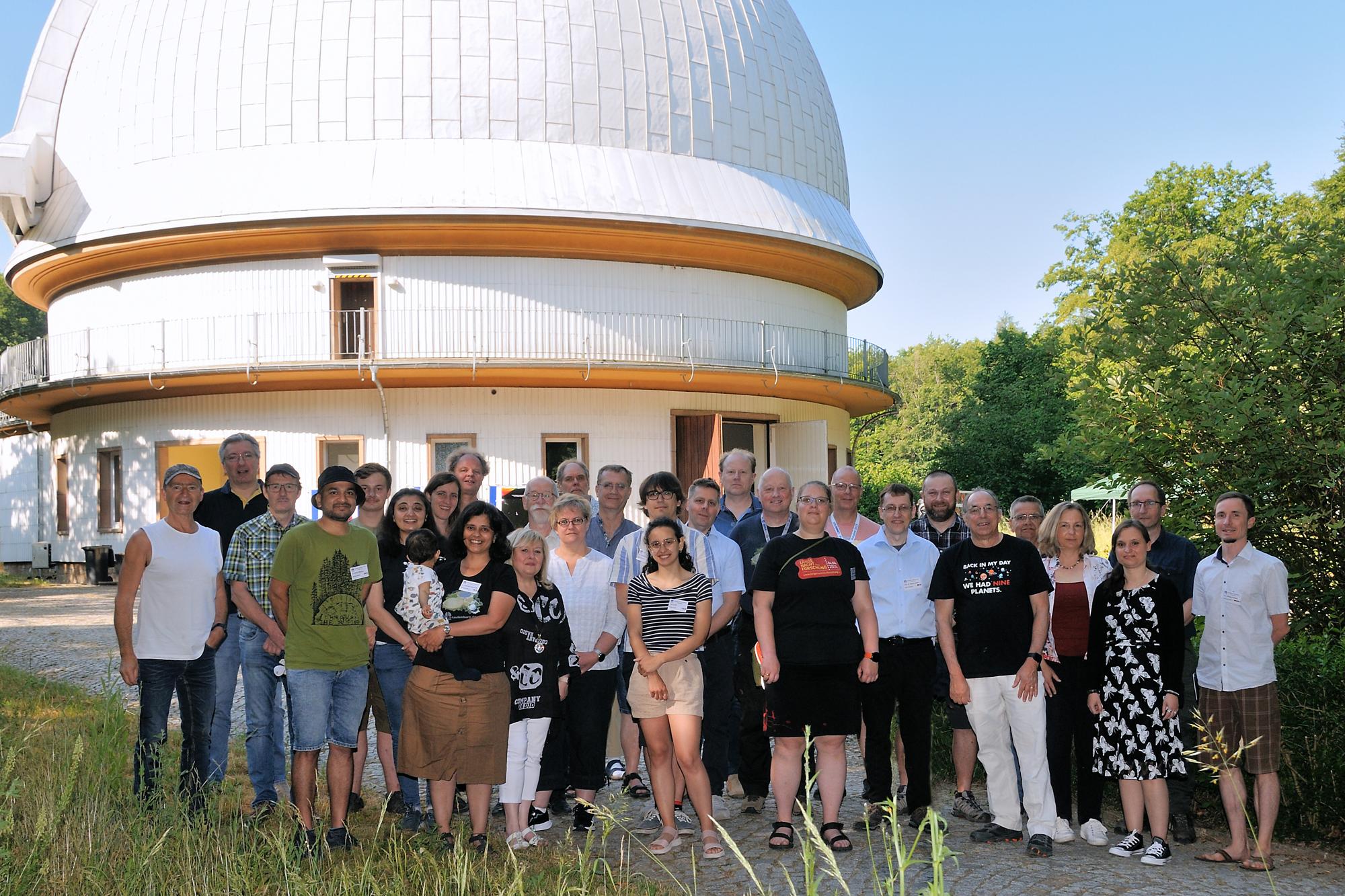
Job Postings
Research Associate
15.12.2025
The Thuringian State Observatory (TLS) is a research institution of the State of Thuringia dedicated to conducting long-term research programs in the fields of astronomy, astrophysics, and space research. The TLS operates the 2-meter Alfred Jensch optical telescope, an international station of the European LOFAR radio telescope, and a solar laboratory, and participates in software development projects and instrumentation projects for telescopes worldwide. The institute is located near the university town of Jena in the Tautenburg Forest.
The Thuringian State Observatory is seeking to fill a position as a research associcate in the Extragalactic and Radio Astronomy Department, with a focus on observational radio astronomy, starting April 1, 2026.
The complete job posting can be viewed here.
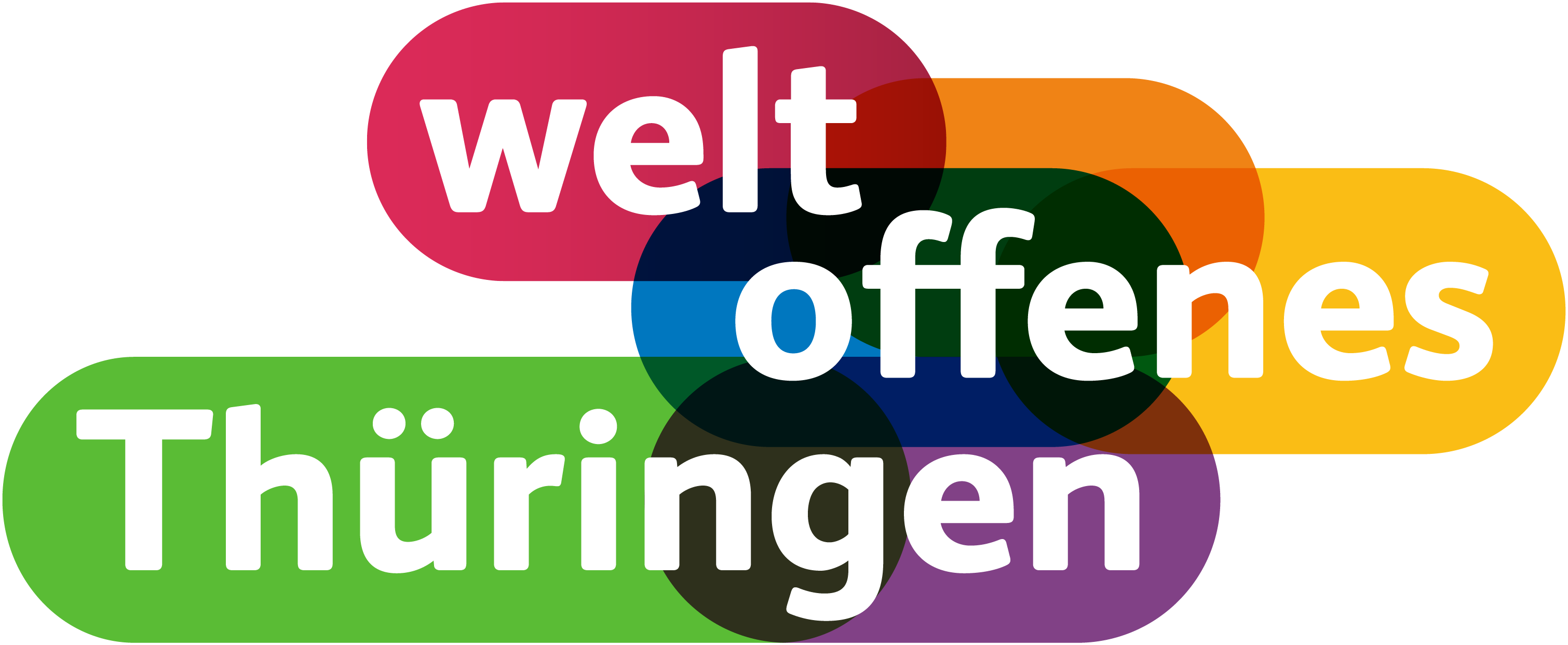
We stand for an open-minded Thuringia
The Thuringian State Observatory in Tautenburg is a research institution that promotes diversity and individuality based on respect and tolerance, and opposes anti-democratic and discriminatory tendencies. For this reason, we support the initiative "Weltoffenes Thüringen" (Open-minded Thuringia). The decentralized, networked initiative aims to send a signal that many people, institutions, associations, and companies in the state stand for a democratic, diverse, and open-minded Thuringia. For more information about "Weltoffenes Thüringen" and the opportunity to support the initiative, please visit: www.thueringen-weltoffen.de
Gallery
Our rights of use apply to these images.
